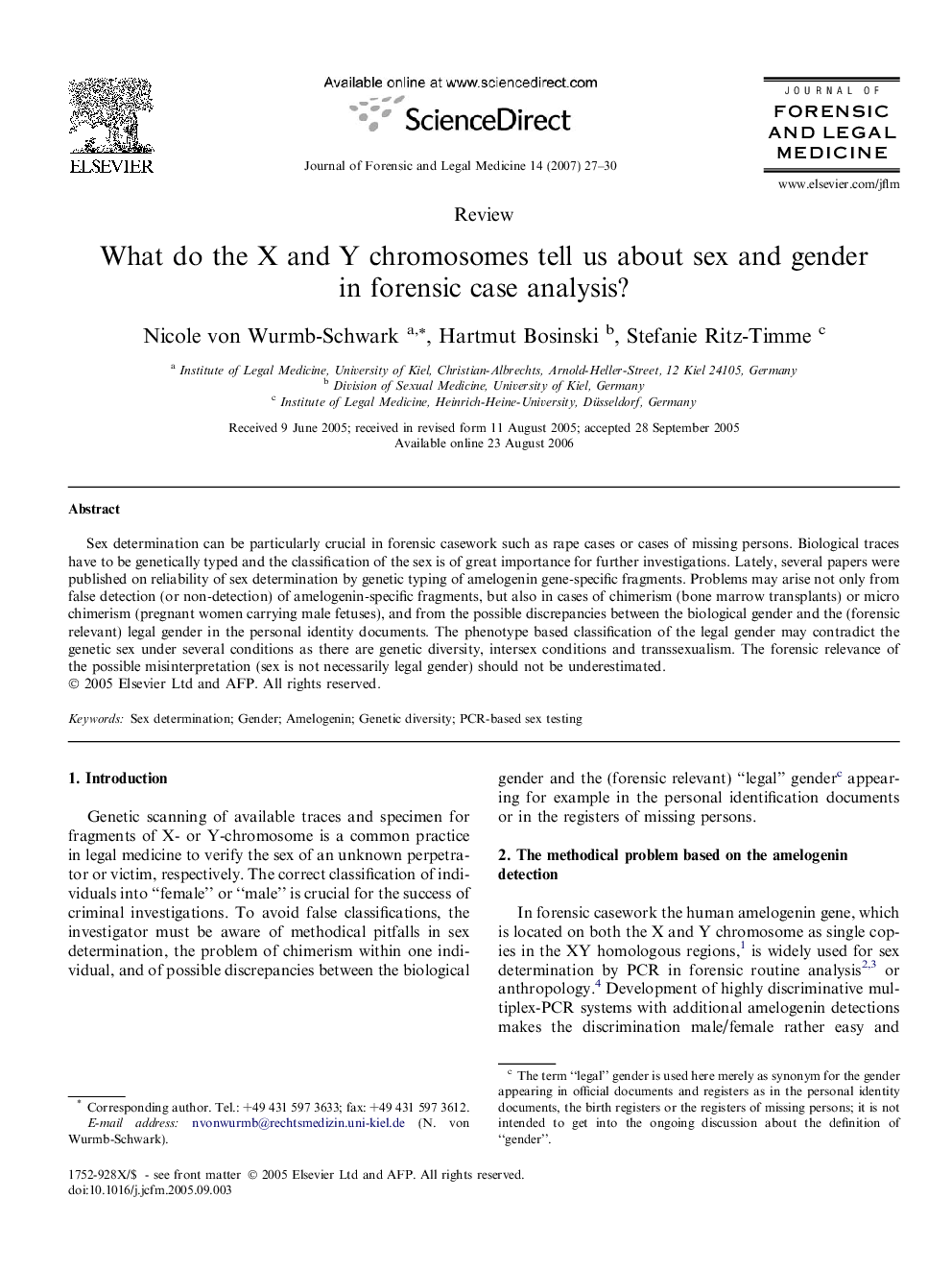| Article ID | Journal | Published Year | Pages | File Type |
|---|---|---|---|---|
| 103008 | Journal of Forensic and Legal Medicine | 2007 | 4 Pages |
Sex determination can be particularly crucial in forensic casework such as rape cases or cases of missing persons. Biological traces have to be genetically typed and the classification of the sex is of great importance for further investigations. Lately, several papers were published on reliability of sex determination by genetic typing of amelogenin gene-specific fragments. Problems may arise not only from false detection (or non-detection) of amelogenin-specific fragments, but also in cases of chimerism (bone marrow transplants) or micro chimerism (pregnant women carrying male fetuses), and from the possible discrepancies between the biological gender and the (forensic relevant) legal gender in the personal identity documents. The phenotype based classification of the legal gender may contradict the genetic sex under several conditions as there are genetic diversity, intersex conditions and transsexualism. The forensic relevance of the possible misinterpretation (sex is not necessarily legal gender) should not be underestimated.
